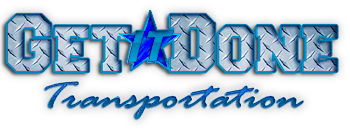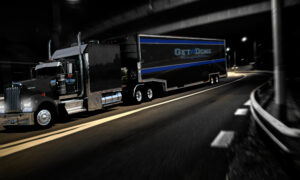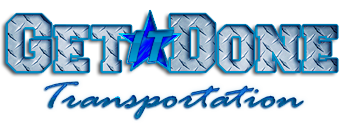Japanese automaker Honda has announced plans to construct a battery factory in the United States, where it already operates three plants. The move is intended to meet the growing demand for battery electric vehicles (BEVs) and make electric models more affordable for consumers. This comes as electric cars continue to gain popularity, with Volkswagen being one of the most prominent manufacturers in the market. Last week, Volkswagen announced it would supply batteries to other automakers and invest in six powertrain plants across Europe, creating an EV hub that will help the German company compete with Asian automakers like Honda.
Honda began auto production in 1963 at its first auto plant located in Sayama, Japan. Since then, the company has expanded its operations to include a total of 12 facilities worldwide. Honda’s engine plant in Anna, Ohio is responsible for producing engines and engine components for many of Honda’s vehicles, including their electric car models. In fact, Honda has made a commitment to dedicate its transmission factory in Georgia to the manufacture of electric vehicles. The company has been making EVs since 1997 and is continuing to expand its offerings with new models like the Honda Clarity Electric and the upcoming Honda e. While Volkswagen is looking to catch up with Asian automakers like Honda in terms of EV production, it’s clear that Honda has been ahead of the game for quite some time now.
Honda is a Japanese carmaker that has been making electrified vehicles since 1997. Recently, the company announced its plans to introduce two new EVs – an electric SUV under the Honda Prologue brand and a new vehicle under the Acura nameplate. The Honda Prologue SUV will be built on General Motors’ Ultium electric vehicle platform, which also powers the Chevy Blazer EV. Meanwhile, the Acura NSX hybrid sports car and ZDX SUV have already been electrified by Honda. With its expanding portfolio of EVs, Honda is positioning itself as a major player in the global market for electric vehicles. In addition to its offerings in Japan, Honda has been selling electrified vehicles in the United States and around the world for years now.
Honda has recently announced the release of its electric SUV, which will utilize the Honda e’s electric vehicle platform. This new model will be available in both a front-wheel drive version and an all-wheel drive (AWD) version, offering drivers ample interior space and agility with compact proportions. The partnership between Honda and General Motors has allowed for the development of this vehicle, which is expected to cater to the urban market. The AWD system will facilitate agility while providing stability in rough terrain.
Honda’s 2030 prediction is to achieve carbon neutrality and the company has made a plan to achieve this goal. Honda’s plan includes introducing new electric vehicles to its lineup, representing 100% battery electric or fuel cell vehicles by 2040. In its recent press release, Honda stated its desire to reach this goal by increasing battery-electric vehicle sales in North America to 70% of total vehicle sales by 2030. The company plans to achieve this by introducing several new models of electric cars that will be powered by a 100 percent battery or fuel cell system. The AWD system will facilitate agility while providing stability in rough terrain.
Honda is accelerating its plan to become a major player in the world of electric mobility. The Japanese carmaker has partnered with Sony to create a handsome new electric sedan, which is set to hit the market in 2025. The 2040 Honda plan includes making two million EVs per year, and adding more electric models to its lineup. Honda is also investing in hydrogen fuel cell cars, which it believes will play an important role in the future of mobility. With this focus on sustainability and innovation, Honda aims to be at the forefront of the transition to electric vehicles. The new sedan will be part of Honda’s expanding electric vehicle lineup, which includes a fuel cell vehicle and several other models. The AWD system will facilitate agility while providing stability in rough terrain. This is an exciting development for both companies – two Japanese companies working together towards a common goal. With sales of their current proto-type doing well, it’s clear that there is demand for this type of vehicle.
Honda has been making strides in the electric car industry, recently partnering with General Motors on a joint venture battery that will help improve performance and reduce costs. Additionally, Honda has announced a new joint venture with Hitachi Automotive Systems to install a new line for building e-axles. Honda is also expanding their role as a supplier by providing batteries to other automakers. In order to accommodate this growth, Honda is building a new brand that combines electric motors and energy solutions. The company has already produced a prototype of their electric car featuring battery modules built from joint ventures with other companies. Furthermore, they have established a battery facility in Ohio to support production of these EVs.
Honda has been making strides in electric vehicle production and is set to continue many of its plants to expand into this market. They have already made progress by developing their knowledge of electric vehicles with the Honda Accord hybrid, but now they are set to make two SUVs as part of their EV hub. While Honda has been known for its gasoline-powered vehicles, they are taking steps toward sustainability with the addition of their EV production. They are not alone in this endeavor as other American auto manufacturers such as General Motors have also announced plans for EVs such as the Hummer EV, Cadillac Lyriq, and Chevrolet Silverado.
Honda today unveiled their upcoming electric car called the Honda Prologue, which will be built on the Hondas 2025 platform. The exterior and interior styling of this vehicle is expected to be groundbreaking, while software connectivity and connectivity services are likely to set new standards in the industry.







